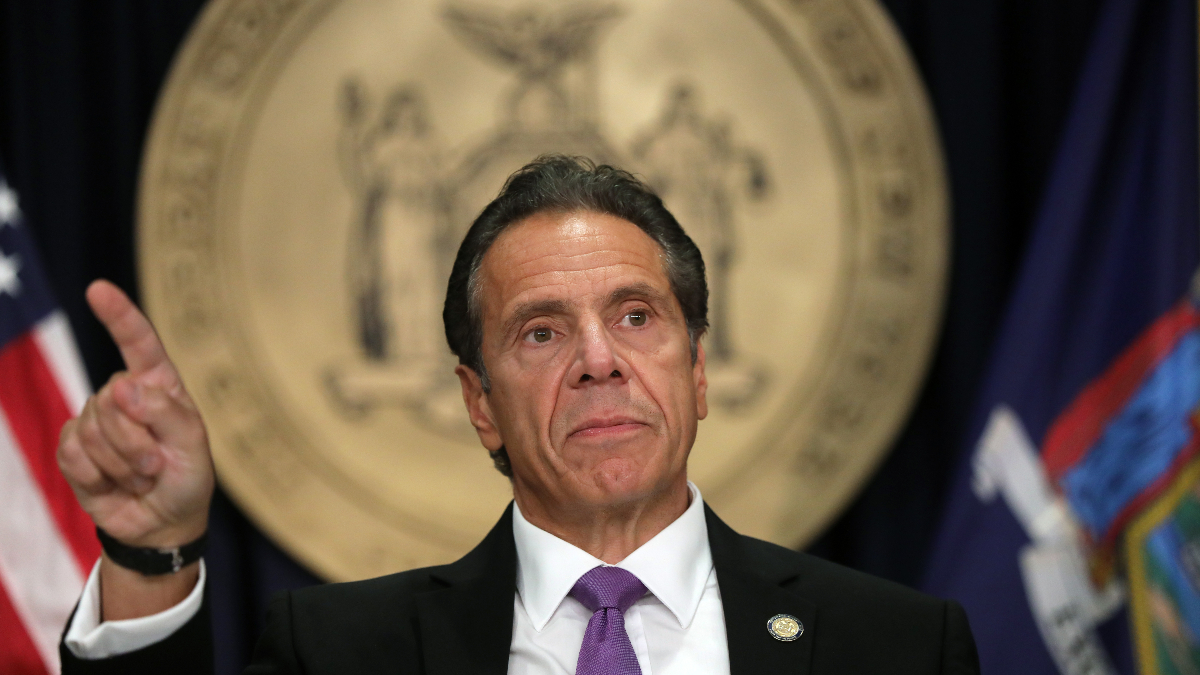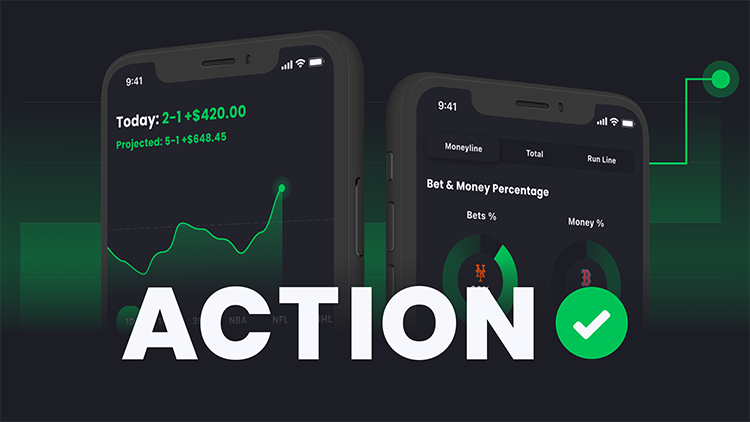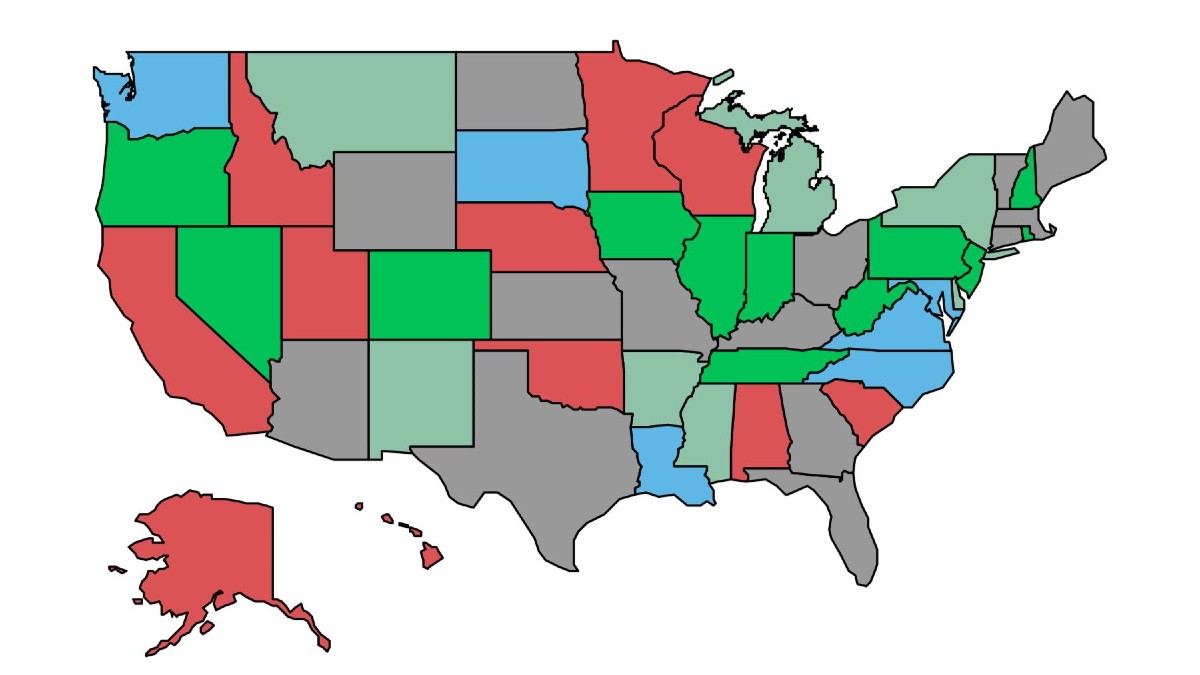
Spencer Platt/Getty Images. Pictured: New York state Gov. Andrew Cuomo.
After years of side-stepping legal online sports betting, New York Gov. Andrew Cuomo embraced a sole-source model for possible online wagering Wednesday, a move that could require a state constitutional amendment, anger the state’s gaming industry and jeopardize the legislative process for what would be the nation’s largest legal wagering market.
Cuomo electrified the industry early Wednesday morning when the New York Daily News reported the governor would announce support for legal sports betting during an upcoming speech, breaking years of opposition that helped stall legalization proposals in the legislature.
But hours later at his daily press conference, Cuomo announced he would back a lottery-run sports betting model, quickly turning what could be the biggest development in recent U.S. sports betting into a political and logistical maelstrom.
Then, shortly after his press conference, Cuomo’s office released a statement that said sports betting would run through the New York State Gaming Commission, not the New York Lottery. The commission would, under Cuomo’s plan, issue requests for proposals to select and license a sport betting operator.
The platform would have to have an existing partnership with one of the state’s commercial casinos.
“At a time when New York faces a historic budget deficit due to the COVID-19 pandemic, the current online sports wagering structure incentivizes a large segment of New York residents to travel out of state to make online sports wagers or continue to patronize black markets,” Cuomo said in a statement.
“New York has the potential to be the largest sports wagering market in the United States, and by legalizing online sports betting we aim to keep millions of dollars in revenue here at home, which will only strengthen our ability to rebuild from the COVID-19 crisis.”
The commission-backed option could alleviate concerns about the constitutionality of Cuomo’s plan, but it leaves many significant questions – and obstacles.
Also, if tailored narrowly to only the four upstate commercial casinos and not the state’s hybrid casino-horse track “racinos,” the statements appears it would only allow one mobile operator, and only FanDuel, DraftKings, BetRivers and IGT allowed to bid for that license. Cuomo championed the upstate casinos’ creation in 2011 during his first term in office.
More details are expected at Cuomo’s State of the State address next Monday and once his budget is filed shortly thereafter. The current trajectory could be good news for one of the four brands above, but bad news for nearly everything else pursing New York online sports betting.
It could also hinder Cuomo’s plans to make New York the nation’s largest sports wagering market.
Possible Legal Hurdles
Legally, the lottery-run plan was challenged almost immediately.
Sports betting legal analyst Daniel Wallach tweeted Wednesday a 1984 New York Attorney General opinion — in response to efforts from then-Gov. Mario Cuomo, the current governor’s father, to legalize sports betting — that determined lottery-run wagering would require a constitutional amendment.
Interestingly enough, the younger Cuomo’s administration had argued a casino-based model would require a constitutional amendment, a view not held by Wallach or many other industry observers.
If an amendment is required, New Yorkers voters wouldn’t be able to approve wagering until the November 2022 ballot, meaning legal online sports betting wouldn’t begin until 2023 at the earliest.
Political Challenges Lie Ahead
A sole-source model under the gaming commission’s purview could be a legal workaround, but it also runs into major political obstacles.
State Sen. Joseph Addabbo and Assemblymember J. Gary Pretlow have spent years spearheading legal sports betting efforts in their respective chambers. Though they disagreed on the total number of licenses, they both supported a competitive, multi-operator market that would extend betting access beyond just the four commercial casinos.
The reticence from Cuomo, a Democrat, to support legal sports betting until this month had stalled momentum in the heavily Democratic legislature. After dismissing the revenue potential for years, Cuomo began warming to legal betting ahead of the 2021 budgeting process as the state is now looking to mobile betting, marijuana legalization and any other solution to overcome a project $15 billion budget, the largest in the state’s history.
His about-face Wednesday could finally galvanize legal sports betting legislation, but Cuomo’s plan could face opposition inside and outside the statehouse.
The state’s Native American casinos, several of which already operate retail sportsbooks, as well as horse tracks are unlikely to support a sports betting market that shuts them out. So too are the lawmakers who represent these interests and have for the past few years been the largest supporters of legal betting in the legislature.
Sole-Source Model Problems
Assuming lawmakers agree to a sole-source model this year — far from a sure bet — there are still considerable questions around the shape of New York online sports betting.
The initial lottery-run proposal Cuomo mentioned set off alarms in the industry, but it’s not inherently a major handicap to its viability. Virginia and Tennessee both run sports betting through the lottery, but each state allows multiple online skins. Ohio lawmakers likewise introduced a lottery-run sports betting bill that would allow multiple providers.
The nightmare scenario for the industry is similar to Washington D.C.’s GambetDC.
Not only does it keep out the dozens of legal U.S. sportsbooks looking to enter the market, but the lone legal mobile sportsbook in the district offers betting lines inconsistent with market averages. For example, a line of -125 aside for a point spread bet that is -110 for most books.
This creates a major disadvantage for players and all-but forces them back to offshore sites and unlicensed bookmakers, defeating the entire purpose of a legal market.
Not coincidently, the state’s lone legal retail sportsbook, currently a few betting windows and a handful of William Hill kiosks in an unfinished corner of Capital One Arena, has outgained GambetDC by millions of dollars in handle.
Other sole-source lottery models have also struggled, including Oregon’s Scoreboard compared to multi-operator states.
During Wednesday’s press conference, Cuomo said a lottery-backed option would be more lucrative.
“Many states have done sports betting, but they basically allow casinos to run their own gambling operations,” Cuomo said. “That makes a lot of money for casinos, but it makes no money for the state. And I’m not here to make casinos money. I’m here to raise funds for the state.”
Budget Director Robert Mujica said this would generate ten times the revenue as a multi-faced casino model.
“The way the governor’s proposing, it will advance it is so that the state can get up to $500 million a year instead of $50 million,” Mujica said at Wednesday’s press conference. “And that would then go to the state budget. Otherwise, for the bettors, it’s seamless. And it’s exactly the same. The only difference is the state gets the money versus others.”
Industry Supports Multiple Options
The sole-source models can provide more direct revenues to state governments, but they critically miss out on capturing the millions wagered each month in the black market, which continues to dwarf the success of even the most well-rounded legal offerings. The top seven states by total 2020 handle all allow at least a dozen operators, most permitting three times that many.
Even with the proliferation of legal sports betting across 20 states and counting, the legal market is estimated to make up less than 10% of the projected $150 billion wagered through offshore sites or unlicensed bookies each year. The key to taking untaxed dollars from illegal sports betting, advocates argue, and putting them into a regulated market is offering bettors choices.
New York’s plan may follow New Hampshire, where its law allowed multiple skins, but DraftKings became the sole legal operator after it drastically out-bid competitors to have an online monopoly.
Mujica’s comments of seamless access for New York bettors is encouraging, but without the availability of more than one top legal brand, New York’s sports betting potential could go from the single largest market in America to a continued afterthought.
With only one of New York’s casino partners even in the running, and other top brands such Penn National’s Barstool Sportsbook, PointsBet, bet365, BetMGM, William Hill and many more that have invested hundreds of millions into attracting customers possibly excluded, would-be legal bettors will still turn to illegal options in droves.
Meanwhile, all the aforementioned brands are available or will soon be in New Jersey, which is nearing a billion dollars in monthly in handle, 20 percent of which the New York government estimates comes from its own residents.
Cuomo’s newfound online sports betting support is one of the biggest developments for the industry since the Supreme Court struck down the federal wagering ban more than two-and-a-half years ago.
His plan for online betting could be a relatively minor regulatory decision if he pursues a multi-operator model and the lottery or gaming commission as merely the caretaker.
But a sole-source model could cripple the overall market potential — if it’s even politically or legally feasible.

